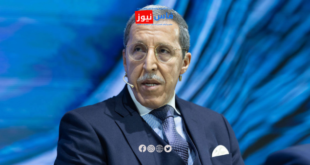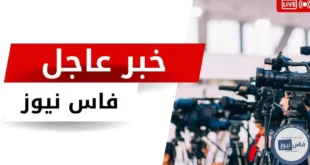Paris: In a sharp escalation of the renewed diplomatic crisis between Paris and Algiers, which had seen a lull of only 12 days, French President Emmanuel Macron has decided to expel “12 staff members from the Algerian consular and diplomatic network in France.” The French presidency also announced the recall of France’s Ambassador to Algeria, Stéphane Romatet, to Paris for consultations regarding this development.
A statement from the Élysée Palace asserted that “the Algerian authorities bear full responsibility for the serious deterioration in bilateral relations.”
The Élysée expressed its “deep displeasure” at this sudden cooling of relations, which comes just two weeks after a phone call between President Macron and his Algerian counterpart Abdelmadjid Tebboune, intended to revive ties after a months-long crisis.
On Sunday, Algerian authorities announced the expulsion of 12 personnel attached to the French Ministry of Interior, giving them 48 hours to leave the country. This Algerian decision was a direct response to the arrest of an Algerian consular official in France on charges related to a kidnapping case.
The French presidency deemed the expulsion of these French nationals a “disregard for the fundamental rules of our judicial procedures” and described it as “unjustified and incomprehensible.”
The French statement continued, “In this context, France will reciprocally expel 12 staff members working in the Algerian consular and diplomatic network in France.” The Élysée also announced that “the President of the Republic has decided to recall France’s Ambassador to Algiers, Stéphane Romatet, for immediate consultations.”
For its part, Algeria defended its decision on Monday evening, describing it as “sovereign” and holding French Interior Minister Bruno Le Roux responsible for the renewed tensions.
However, French Minister of State for European Affairs, Jean-Noël Barrot, affirmed that Le Roux “has no connection to this judicial matter,” explaining that “the judiciary is independent, and this is a judicial procedure initiated months ago that has no relation to the diplomatic dialogue we resumed in March with the Algerian authorities.”
In a post on X (formerly Twitter), Barrot, who visited Algiers in early April, stated that “the Algerian authorities have chosen escalation,” adding, “We are responding as previously announced.” He emphasized the importance of “dialogue, always, but not in one direction.”
Earlier on Tuesday, Le Roux told French news channel CNews that “it is unacceptable for France to be a playground for Algerian services,” considering the French presidency’s decision to expel 12 Algerian officials in response to Algeria’s move “seems perfectly appropriate to me.”
The latest escalation is rooted in the indictment issued on Friday in Paris by the French National Anti-Terrorism Prosecutor’s Office against three men, one of whom is an employee of an Algerian consulate in France, on charges of arrest, kidnapping, and arbitrary detention in connection with a terrorist plot.
The case concerns the kidnapping of Algerian influencer and opponent Amir Boukhors, known as “Amir DZ,” at the end of April 2024 on French territory. Algeria had repeatedly requested Boukhors’ extradition for trial. The men were also charged with forming a terrorist criminal association and placed in pre-trial detention.
Barrot had emphasized France’s desire to maintain communication channels with Algeria, urging the authorities to reverse their latest decision, expressing regret over this decision that “threatens the dialogue” recently initiated to pull the two countries out of a crisis that nearly reached the point of diplomatic rupture.
The diplomatic crisis between the two nations initially began with the French President’s full support for Morocco’s autonomy plan under its sovereignty for the Western Sahara, a stance that angered Algeria and prompted it to recall its ambassador from Paris. Despite subsequent efforts to resume dialogue, tensions appear to have returned to overshadow relations between the two countries.
 فاس نيوز ميديا جريدة الكترونية جهوية تعنى بشؤون و أخبار جهة فاس مكناس – متجددة على مدار الساعة
فاس نيوز ميديا جريدة الكترونية جهوية تعنى بشؤون و أخبار جهة فاس مكناس – متجددة على مدار الساعة













